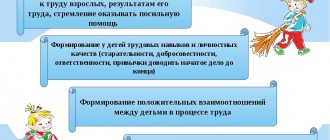Documents required when applying for a job
To get a teenager to work you need:
- document confirming the identity of the person entering the organization (general civil passport);
- confirmation of education, receipt of a certain qualification or certificate of suspension of education;
- work book (if available);
- document of a participant in the pension system (SNILS), except for the situation of hiring for the first place of work;
- confirmation of military registration (for boys);
- permission of the parent (guardian), as well as the guardianship authorities, to employ a child under 16 years of age;
- medical certificate.
The procedure established by the Ministry of Health and Social Development of the Russian Federation (Order No. 302, 04/12/2011) provides for the mandatory medical examination of adolescents every year until they reach adulthood.
Attention! A medical examination of a citizen is carried out at the expense of the enterprise (Articles 69, 266 of the Labor Code of the Russian Federation). If a minor employee does not have a medical certificate, the management of the organization faces liability for an administrative violation (Article 5 of the Code of Administrative Offenses of the Russian Federation).
Punishment for violating children's work rules
The child himself, who was striving for quick employment, will not bear any responsibility, nor will his parents who allowed illegal labor. Only the employer will be held responsible in such a situation.
This is also important to know:
Personnel outstaffing - what it is and why it is prohibited
So, if an employer does not officially register employment relations with teenagers or makes errors in this registration, a penalty may be applied to him.
Namely:
- A fine of 1,000 to 5,000 rubles – for officials;
- For individual entrepreneurs – a fine of 1,000 to 5,000 rubles or administrative suspension of activities for up to 90 days;
- For legal entities - a fine of 30,000 to 50,000 rubles or administrative suspension of activities for up to 90 days.
Such measures are prescribed in Art. 5.27 of the Code of Administrative Offenses of the Russian Federation and are punished for violations of labor and labor protection legislation.
For each individual violation of the rules of the Labor Code of the Russian Federation, punishment is provided in accordance with Art. 4.4 Code of Administrative Offenses of the Russian Federation.
Employers are often not afraid to violate the norms of the Labor Code of the Russian Federation and exploit child labor by deceiving teenagers and not paying them wages. Few of them will complain about the behavior of the company in which they worked.
Employee training
The head of the preschool educational institution is obliged to provide training on labor protection to all employees of the institution. The training procedure is regulated by Resolution of the Ministry of Labor of the Russian Federation and the Ministry of Education of the Russian Federation dated January 13, 2003 N 1/29 “On approval of the Procedure for training in labor protection and testing knowledge of labor protection requirements for employees of organizations.”
OSH training is provided to employees of all professions and positions:
- within a month after hiring;
- when transferring to another job;
- during advanced training.
Further training is carried out:
- for managers and specialists – once every 3 years;
- for blue-collar workers, the frequency is determined by the head of the institution.
OSH training cannot be conducted less frequently than specified in current regulations, industry and inter-industry rules.
Employees can undergo training at a specialized training center according to the appropriate program, as well as at the institution itself. As a rule, only those responsible for occupational safety in kindergartens, as well as members of the permanent operating commission for testing knowledge of labor protection requirements, are trained in training centers.
Labor safety training for employees of an institution is approved by the head of the preschool educational institution and is carried out according to training programs developed for professions, positions and for each type of work.
Workers who have not completed labor safety training and knowledge testing cannot be allowed to work.
Occupational safety training ends with testing the knowledge acquired by the employee. For this purpose, the institution, by order of the head, creates a permanent commission to test knowledge of occupational safety requirements, consisting of at least three people.
The number of people on the commission for testing knowledge of labor protection requirements must be odd.
The commission usually includes the head of the preschool educational institution, deputy heads (for administrative and chemical work, chemical engineering, labor management, water management), an occupational safety specialist, and the chairman of the trade union organization (the representative for labor protection from the workforce).
Knowledge testing is carried out in accordance with regulations governing labor protection issues, compliance with the requirements of which is included in the job responsibilities of employees.
The results of the knowledge test are documented in the appropriate protocol.
Role of the family
Raising a child and teaching him to work begins in the family. From an early age, when the baby is just beginning to socialize, he observes his parents, older brothers and sisters, and other relatives who are constantly nearby, and adopts their attitude to work.
Domestic chores do not always bring joy to the child; you have to overcome yourself. This builds character, develops willpower, and if parents do not skimp on praise, it also increases self-esteem.
Labor upbringing in the family is the most important stage in the formation of a personality, because this is where the child spends most of his daily life and is happy to first carry out light household chores for his mother, father or grandmother (cleaning up toys), and then get accustomed to more serious work (washing dishes, taking out the trash). ).
If parents instill in their child a love of work from childhood, allowing him to take part in matters that interest him (even if he only gets in the way at first), then as he grows up, they will receive a full-fledged assistant in the household. And, on the contrary, by forbidding the child to help his mother or father, one should not be surprised that he then categorically refuses to work for the benefit of the family, and then society.
There is no need to push your child away if he wants to help bake a cake or repair a car. You can let him do simple work that he can do and explain how to do everything correctly. This is how the child gets accustomed to work and at the same time his self-confidence increases, because he is doing “adult work.”
Teaching schoolchildren to work
The love of work begins to be instilled most actively at school. Younger students collect herbariums, help in the garden and in the living corner (if there is one), and water the flowers in the classroom.
Thanks to labor education, the child masters skills that he will then need throughout his life (household, self-service).
Work develops independence from adults, increases self-esteem and the desire to develop further.
By doing even the simplest work independently, the baby learns to do everything neatly and beautifully, which develops a sense of beauty. He begins to appreciate other people's work, feeling that to achieve a result it is necessary to make volitional efforts.
Labor education of schoolchildren in high school is associated with career guidance of students.
For this purpose, lectures are held in which high school students are presented with representatives of different professions:
- talk about their work;
- explain where you need to go to study in order to get a profession;
- answer children's questions.
They organize excursions to enterprises where people’s work is clearly shown. Basically, children are taken to a city-forming enterprise that needs fresh personnel. As a result, schoolchildren learn first-hand about various types of work activities, which allows them to make an informed choice of profession.
Labor is the basis for the harmonious development of personality. It is important from early childhood to instill in a child respect for him, to work productively, increasing his professionalism. This is precisely the main goal of labor education.
Briefings
In kindergartens, it is mandatory to provide instructions on occupational safety (Article 212 of the Labor Code of the Russian Federation). The head of the institution is prohibited from allowing employees who have not completed their duties to perform their official duties.
The types of briefings, the procedure and requirements for organizing them by the employer are established by Resolution of the Ministry of Labor of the Russian Federation and the Ministry of Education of the Russian Federation dated January 13, 2003 N 1/29 “On approval of the Procedure for training in labor protection and testing knowledge of labor protection requirements for employees of organizations.”
Let's look at the main types of safety training.
| Type of instruction | Who is it for? | In what cases is it carried out? | Conducted by whom |
| Induction training | To all employees. | When applying for a job. | Manager / occupational safety specialist. |
| Initial briefing | To all employees. Exception: employees who are exempt from training by order of the head of the organization in accordance with clause 2.1.4. Resolution No. 1/29 of January 13, 2003 | When applying for a job. | The immediate supervisor of the work, appointed by order. |
| Re-briefing | To all employees. Exception: employees who are exempt from training by order of the head of the organization in accordance with clause 2.1.4. Resolution No. 1/29 of January 13, 2003 | Regularly, at least once every 6 months or at least once every 3 months, if the work involves increased danger and this requirement is established by industry labor protection rules. | The immediate supervisor of the work, appointed by order. |
| Unscheduled briefing | The list of employees is determined by order of the head of the organization. | At the request of supervisory authorities. After an emergency or accident occurs; When launching new equipment. When new labor protection requirements come into force. After a long production downtime. | The immediate supervisor of the work, appointed by order. |
| Targeted briefing | The list of employees is determined by order of the head of the organization. | When performing one-time work not related to direct job responsibilities. When eliminating the consequences of accidents and natural disasters. When performing work according to a work permit. When organizing mass events and excursions. | The immediate supervisor of the work, appointed by order. |
Why are instructions needed? First of all, to prevent the occurrence of dangerous situations and injuries during the performance of work duties. Kindergarten employees must know their areas of responsibility, and in the event of a dangerous situation, they must help teachers prevent injury to the young children entrusted to them.
All briefings end with an oral test of the knowledge acquired by employees.




